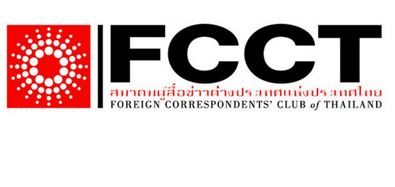One of the unpleasant side effects of Thailand’s hyper-royalism is that is produces a virulent anti-royal fundamentalism.
A recent example of this is the attack launched by former Reuters’ journalist, Andrew MacGregor Marshall on the Foreign Correspondents Club of Thailand (FCCT). A post on his blog, Zen Journalist, claims that “the foreign media are failing Thailand”.
The zen quickly evaporates as Marshall describes the FCCT as “a miserable and pretentious institution, a dingy drinking venue for (overwhelmingly middle-aged and male) bar-stool bores.” Specifically Marshall condemns the FCCT for not taking a public position condemning the lèse majesté imprisonment of Somyot Prueksakasemsuk. He goes on to attack foreign journalists working in Thailand for their failure to write frankly about the monarchy and its role in Thai political life:
The vast majority of foreign journalists continue to cling to the discredited fairytale narrative propounded by palace propaganda. … There is no other country on earth in which the foreign press corps so obsequiously avoids reporting basic facts that they surely know to be true. Even mighty China and bellicose North Korea, for all their restrictions on reporting and freedom of information, fail to match the ability of Thailand’s elite to persuade foreign journalists to obediently censor themselves…
The real reason Nirmal Ghosh [FCCT President] and the FCCT board refuse to condemn Somyot’s sentence and refuse to openly state their opposition to censorship and lèse majesté has nothing to do with principle. It is because they are scared. Not only are they terrified of accurately reporting the role of the monarchy in Thai politics, but they are afraid to even criticise Article 112, even though there is nothing illegal in doing so.
Worse, most foreign journalists are unwilling to even acknowledge that they operate in perpetual fear of lèse majesté and that this severely constrains their reporting. They refuse to even be honest about their inability to cover Thailand honestly
Marshall recognises that there are “plenty of courageous and principled foreign journalists covering Thailand” but claims that “their good work is undermined by a feckless majority who refuse to stand up to censorship, and a vocal minority of long time FCCT members who unashamedly peddle palace propaganda.
Marshall concludes:
By failing to criticise – or even acknowledge – the worsening repression of freedom of speech in Thailand, the FCCT is colluding in it. That needs to change.
I have no particular brief for the FCCT; in fact I have never graced one of their bar stools. But I have participated, via Skype, in two of their events dealing with the lèse majesté law. To my mind both were useful and open discussions of a difficult and contentious issue. I have seen notices about other similar events. In fact, the FCCT seems to be one of relatively few places in Thailand where English-language discussion of the monarchy and contemporary Thai politics takes place in a public forum.
I can understand Marshall’s frustration, even anger, about the FCCT’s position in relation to Somyot’s imprisonment. But I am disturbed by his fundamentalism which assumes that there is only one morally desirable approach to be taken to the extraordinarily difficult lèse majesté issue. In his polemic there is no room for self-doubt; no room for respectfully considering the tactical judgements that others make; and no acceptance of the range of opinions that exist about lèse majesté. To assume that there is only one effective, or morally desirable way, of tackling a problem as politically complex as Thailand’s royalist repression is extraordinarily na├пve.
I completely support critical commentary on journalists’ coverage of Thai politics and the monarchy. But I don’t support the fundamentalist vilification of journalists – especially a fine journalist like Nirmal Ghosh – because they have different opinions, or have made different judgements about the path to political reform.
The cultural foundation of the lèse majesté law is the toleration of intolerance. Some anti-royalist commentators seem determined to keep that cultural foundation intact.
 Facebook
Facebook  Twitter
Twitter  Soundcloud
Soundcloud  Youtube
Youtube  Rss
Rss 
